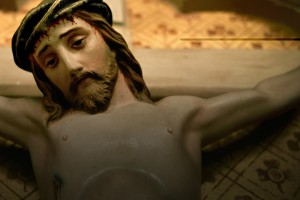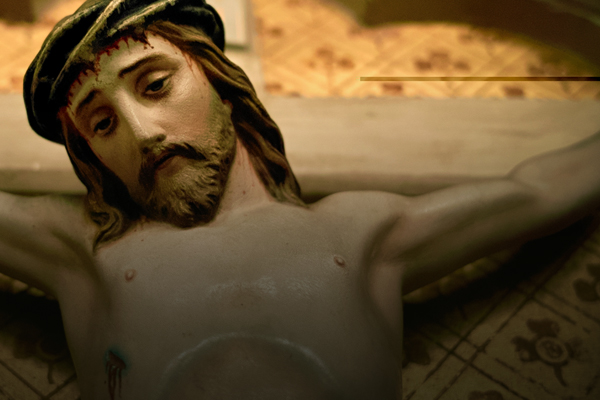
Evil and suffering are typically experienced and understood within the context of one’s life. As an atheist, I hoped for (and expected) a life of approximately ninety years. In the context of this span of time, if I had developed cancer in my forties, I would have been angered by the amount of time stolen from me as I battled the disease. In fact, if I had been diagnosed with a terminal disease at that age, I would have been outraged by the fact it was going to deprive me of fifty percent of the life I expected. When your life is only ninety years long, anything cutting the time short is evil, and any prolonged suffering along the way is unjust and intolerable.
But what if we could live more than ninety short years? What if our lives had a beginning, but no end? How would we see (and respond to) evil, pain and suffering in the context of an eternal life? How many of you who can remember the painful vaccinations you received as a child? If you’re reading this article at the age of thirty, the small period of your life occupied by the pain you experienced during those vaccinations has been long outdistanced by the years you’ve lived since then. As time stretched on from the point of that experience, you were able to place the pain within the larger context of your life. You don’t even remember it now. If you have pierced ears, ask yourself a similar question. The pain you experienced at the point of the piercing is nearly forgotten, especially if it has been years since it occurred. Evil, pain and suffering are experienced and understood within the larger context of one’s life.
If the Christian worldview is true, we are eternal beings who will live forever. We get more than ninety years, we get all of eternity. Our experience and understanding of pain and evil must be contextualized within eternity, not within our temporal lives. Whatever we experience here in our earthly life, no matter how difficult or painful it may be, must be seen through the lens of forever. As our eternal life stretches out beyond our struggles in mortality, our temporal experiences will become an ever-shrinking percentage of our consciousness. The suffering we may have experienced on earth will be long outdistanced by the eternal life we’ve lived since then. Our life with God will be a life without suffering, without pain and without evil. “God will wipe away every tear from (our) eyes; and there will no longer be any death; there will no longer be any mourning, or crying, or pain; the first things have passed away” (Revelation 21:4). It will also be a life where justice is realized, “for the Lord loves justice; he will not forsake his saints,” (Psalm 37:27-28) and He “will judge the righteous and the wicked, for there is a time for every matter and for every work” (Ecclesiastes 3:17). As our glorious eternal life with God stretches beyond our temporal experience, whatever suffering or injustice we might have experienced here on earth will seem like it occurred in the blink of an eye.
In the context of the Christian eternal life, pain, suffering and evil can be faced and endured with strength, hope and confidence unavailable in an atheistic worldview. What used to seem so unjust to me is now less egregious. What used to seem so unbearable can now be faced with hope. The problem of evil, from my new Christian perspective, isn’t the same kind of problem it was from my old atheistic perspective, because the problem of evil isn’t really a problem for Christianity.

J. Warner Wallace is a Dateline featured Cold-Case Detective, Senior Fellow at the Colson Center for Christian Worldview, Adj. Professor of Christian Apologetics at Talbot School of Theology, Biola University, author of Cold-Case Christianity, God’s Crime Scene, and Forensic Faith, and creator of the Case Makers Academy for kids.
Subscribe to J. Warner’s Daily Email
J. Warner Wallace is a Dateline featured cold-case homicide detective, popular national speaker and best-selling author. He continues to consult on cold-case investigations while serving as a Senior Fellow at the Colson Center for Christian Worldview. He is also an Adj. Professor of Christian Apologetics at Talbot School of Theology, Biola University, and a faculty member at Summit Ministries. He holds a BA in Design (from CSULB), an MA in Architecture (from UCLA), and an MA in Theological Studies (from Gateway Seminary).

































Pingback: J. Warner Wallace – Is the Problem of Evil Really a Problem for Christianity? » Christian Apologetics & Intelligence Ministry
Pingback: God Allows Suffering | Christianity But Really
Pingback: The Problem with Answering the Problem of Evil | Anchor Apologetics – Best Answers in Christianity
Pingback: 6 Things You Can Tell Your Kids to Explain Pain and Suffering in Our World • Divine Council
Pingback: Resources: How could a good God allow pain and suffering? – Mrs. Spencer's Bible at DCSS